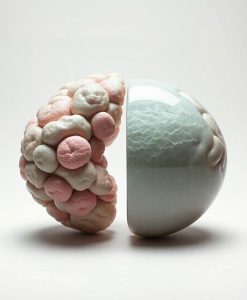Science isn’t a distant universe—it’s woven into our daily lives. Every breath, every choice, connects us to remarkable discoveries happening right now. But many people experience science as something abstract, happening far from their lived experience.
Psychological distance creates invisible barriers between people and scientific knowledge. When research feels disconnected from personal stories, trust erodes. Imagine science as a conversation with your community, not a lecture from an ivory tower. By bridging that gap—showing how scientific insights directly relate to health, environment, and personal growth—we transform passive information into powerful understanding.
Understanding how science touches our lives isn’t about technical complexity. It’s about storytelling that reveals our shared human potential. Each breakthrough connects us: a local researcher solving a community problem, a medical innovation improving someone’s quality of life, an environmental study protecting our shared future. When science feels personal, it becomes a collaborative journey of discovery—inviting curiosity, building trust, and expanding what’s possible.
Feeling Connected to Science: How Bridging the Gap Restores Trust
Imagine waking up in the morning, feeling the subtle weight of your routines—your breath, the warmth of your coffee cup, the gentle hum of everyday life. Now, think about how often science feels like a distant buzz—something happening in labs, on screens, or behind textbooks, far removed from your personal world. That sense of distance can quietly build barriers, making it harder to trust scientific insights that could help you in your daily choices. But what if science felt more like a part of your story—something that resides within your own experiences, concerns, and hopes?
This isn’t just a poetic idea; recent research points to a powerful truth: the closer we perceive science to be to ourselves, the more likely we are to trust it. When science feels distant or abstract, skepticism can grow, and the potential for beneficial change diminishes. Conversely, when we see science as intertwined with what matters most—our health, our environment, our community—we’re more inclined to embrace its guidance.
How perceiving science as part of your everyday life can rebuild trust
Think about the last time you encountered scientific information that felt relevant—maybe a story about how a new health study could improve your wellbeing, or a local environmental effort that impacts your neighborhood. When science is presented through stories that connect directly to your personal experiences, it stops feeling like something external. It becomes a trusted companion in your decision-making process.
This shift from distant to close involves more than just understanding scientific facts; it’s about emotionally connecting with the knowledge. When science is perceived as part of your own story, it’s easier to see its relevance and trustworthiness. For example, a vaccination campaign that shares real stories of community members overcoming fears can make the science behind immunizations feel more accessible and trustworthy. When scientific findings are framed within the context of your daily life, skepticism often gives way to curiosity and confidence.
Bringing science closer to your personal world through storytelling
One of the most effective ways to bridge this psychological gap is through storytelling. Instead of dry data or abstract concepts, scientists and communicators can share narratives that highlight how scientific discoveries impact real lives. Imagine hearing about a family implementing eco-friendly practices inspired by climate research, or a patient benefiting from a new medical breakthrough because it was tailored to their needs.
Educational strategies that emphasize personal relevance—like health advice that considers your lifestyle or environmental messages tied to your local community—help shrink the perceived distance. When science is woven into the fabric of our everyday experiences, it transforms from an outsider’s pursuit into a shared human journey.
Why trust in science is essential for a healthier, more resilient society
Trust isn’t just about believing in facts; it’s the foundation of collective action. When science feels like it’s part of your world, you’re more likely to support policies on climate change, vaccination programs, or sustainable living. This trust translates into active participation—voting, advocating, or simply making healthier choices—driven by a sense of connection rather than obligation.
This isn’t about oversimplifying complex science but about fostering a sense of shared human experience. When you see science as a tool to improve your life and the lives of those around you, trust becomes a natural consequence. It’s about feeling that science isn’t just distant knowledge but a trusted partner in shaping a better future.
Envisioning a future where science is woven into everyday life
Picture a world where scientific insights are part of daily conversations, community projects, and personal decisions. A world where trusting science doesn’t require a leap of faith but flows naturally from feeling understood and connected. When we address the psychological distance—seeing science as something closer, more relatable—we open the door to a more engaged, resilient society.
By recognizing how our perception of science influences trust, we can actively work to make it more accessible and relevant. This isn’t about dumbing down science but about making it feel like it belongs to us—our stories, our struggles, our aspirations.
In the end, when science feels close, it becomes less of an abstract concept and more of a trusted ally in nurturing human potential and well-being.
—
**Learn More:** How Feeling Closer to Science Can Rebuild Trust in What Matters Most
**Abstract:** Psychological distance to science reflects how people perceive science from the perspective of the self. For many, science represents a distant endeavor that is irrelevant to day-to-day life. Research from my lab finds that distance to science correlates with, and predicts, science rejection across domains. Bringing science closer improves trust.
**Link:** Read Full Article (External Site)


